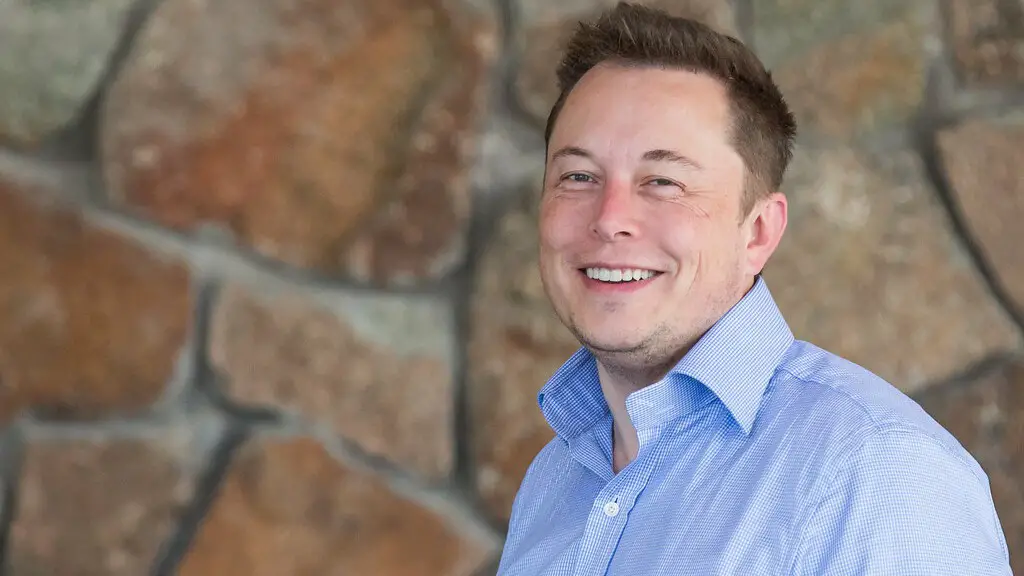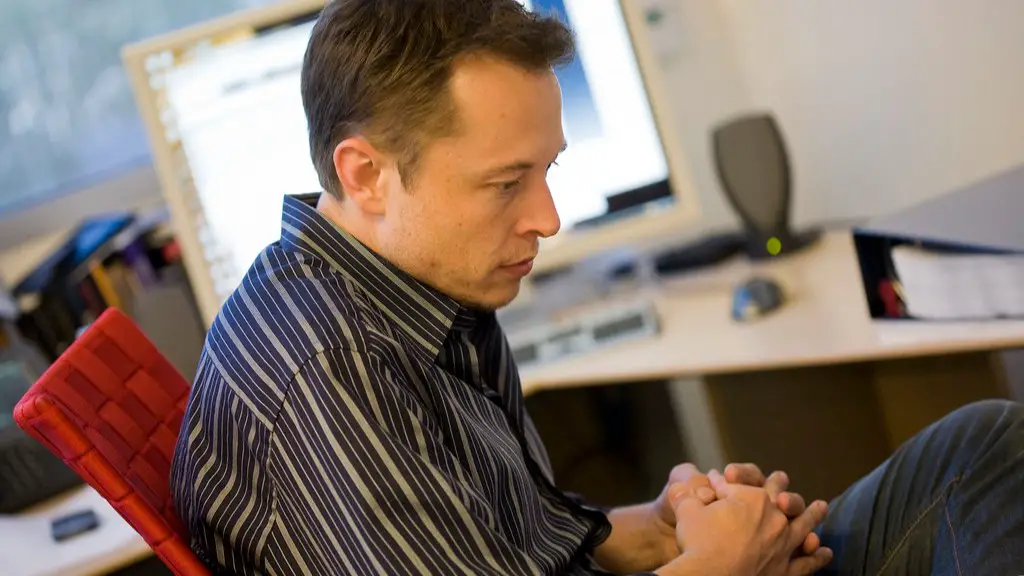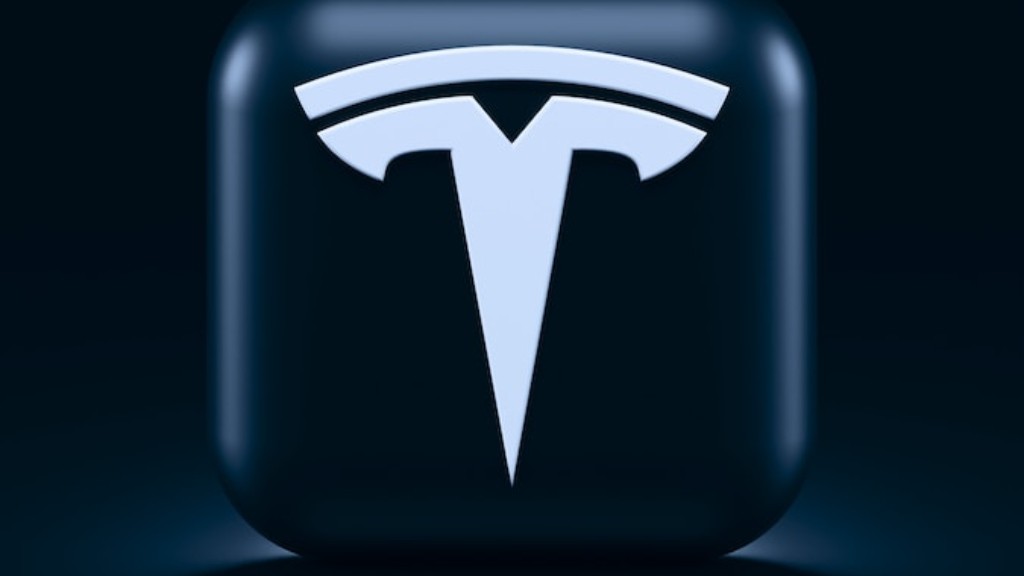Elon Musk’s Role in American Business: A Growing Contention
Elon Musk has been an astonishing success story in American business. The South African born entrepreneur is today at the helm of cutting edge companies in industries such as aerospace and energy. He has become an icon of innovation and technological progress in the world market, and a standard bearer of the American Dream. Yet questions have been raised that Elon Musk’s unique position in the market raises the prospect of a national security risk.
The fear that Elon Musk has become a potential risk for the US national security revolves around his influence in several spheres. First, Elon Musk is chair of the privately-held aerospace company SpaceX. SpaceX is the leading provider of satellite and space related services to both the public and government sectors. Through his close ties to the government, and the tremendous influence he has in the aerospace industry, some have questioned whether there could be potential national security risks. Second, Musk is also the founder and chair of the electric car company Tesla, Inc. Tesla is a publicly traded company, making Musk the most powerful figure in the electric car industry worldwide. Though Tesla does not directly sell to the Federal Government, some believe his vast influence in the industry may lead to difficulties. Finally, Musk is also the founder and CEO of Neuralink, a company which is aiming to develop a neural link technology that would allow humans to communicate and interact with machines on a new level. Neuralink’s technology has tremendous implications and could have a large impact on national security. The government may be worried that Neuralink’s technology could fall into the wrong hands.
Experts have weighed in on the subject of Elon Musk’s potential role as a national security risk, with differing views. The Brookings Institute, for example, has suggested that Musk’s influence on the aerospace and electric vehicle markets, coupled with his commercial interests, could lead to a situation where the US government is heavily reliant on a single powerful individual. This could compromise the integrity of the government’s decision-making and even put the security of the public at risk. On the other hand, supporters of Elon Musk argue that the potential national security risks posed by his influence have been greatly exaggerated. They say that Musk has always been a proponent of free markets and his companies have never sold any proprietary technology solely to the government. Moreover, they point to Musk’s strong anti-government rhetoric and his refusal to participate in government programs as evidence that he is unlikely to pose any sort of risk.
From an analytical standpoint, I believe that the potential national security risk posed by Elon Musk is something that should be scrutinized more closely. Musk’s influence is not only limited to the US, since he has companies across several countries that are heavily invested in different technologies. Moreover, the US government’s reliance on SpaceX to provide space-related services could lead to a situation where the government is beholden to a single individual. Lastly, Musk’s close ties to foreign governments could be another potential national security risk. Though there is no evidence at this point that Musk has committed any illegal activities, there should be greater oversight of his influence in the aerospace, electric vehicle, and neural networking markets.
Regulatory Scrutiny towards Elon Musk
In response to the potential risk of Elon Musk’s influence on US national security, US Government regulatory agencies have taken a more active role in scrutinizing Musk’s activities. The Securities and Exchange Commission (SEC), for example, has been closely monitoring Musk’s business practices. In 2018, the SEC launched an investigation into Tesla’s alleged failure to disclose information related to a potential acquisition of the company by another firm. The SEC’s inquiry into this matter resulted in Musk being fined $20 million for failing to disclose material information to investors. The SEC also issued Musk a cease-and-desist order to ensure that similar incidents of non-disclosure do not occur in the future.
The National Transportation Safety Board (NTSB) has also launched an investigation into the activities of Elon Musk and his companies. In 2018, the NTSB investigated a car crash involving a Tesla vehicle, with the crash being attributed to Tesla’s Autopilot technology. The NTSB’s probe into the incident revealed several potential issues with Tesla’s Autopilot system, and the findings were released to the public. In addition, the Federal Aviation Administration (FAA) has also increased its oversight of Elon Musk’s aerospace businesses. In 2019, the FAA launched an investigation into SpaceX’s Starlink satellite program due to concerns over the satellites’ potential interference with aircraft and ground navigation systems. The investigation is still ongoing, and it has yet to be seen what the ultimate outcome will be.
Political Implications for Elon Musk
The increased scrutiny on Elon Musk’s activities and companies have had political implications as well. Musk has been a vocal advocate for progressive policies and is a critic of President Donald Trump and his administration. For example, he has been very vocal about his opposition to the Trump administration’s policies on immigration, climate change, and trade. In addition, he has been an outspoken critic of the way the President has handled the novel Coronavirus pandemic, much to the chagrin of Trump and his supporters. The increased scrutiny of Musk’s activities by the US Government has been seen by some as an effort to silence his political criticisms of the President.
In addition to this, some have argued that the government has been targeting Musk with the aim of curtailing his economic success. There is speculation that the investigations into his companies are an attempt to halt the tremendous growth of Tesla and SpaceX. Supporters of this theory point to the fact that the investigations into Tesla and SpaceX began shortly after Musk criticized the President and his policies. They argue that this targeted scrutiny of Musk is a form of retribution for his political activism and shows a disregard for the rights of American businessmen.
In my opinion, the US Government’s approach to Elon Musk has been misguided and perhaps motivated by political considerations. The scrutiny of Musk’s companies has taken away from the government’s focus on real security threats. Moreover, the government should be aware of the chilling effect that its scrutiny has on entrepreneurs, as it serves to discourage them from speaking out on political issues. Finally, one has to question the motives of the US Government in targeting such a successful, innovative American businessman.
The Media’s Role in the Controversy
The media has also played an important role in the unfolding controversy surrounding Elon Musk. Much of the media coverage of the situation has focused on scrutinizing Elon Musk’s business practices and his relationship with the government. This has led to the issue receiving tremendous public attention, as many people have been following the story closely. This has in turn put a great deal of public pressure on the US Government to take action against Musk and his companies.
The media’s coverage of Musk has often portrayed him in a negative light, as some news outlets have sought to portray him as a “rogue entrepreneur” who puts his own interests above those of the public. This characterization has become even more prevalent with the increased scrutiny on Musk’s activities and the allegations that he is a potential national security risk. This has made it difficult for Musk and his supporters to defend against the allegations, as the public has largely viewed these claims as being credible.
From a media analysis standpoint, I believe that the media’s coverage of Elon Musk has been unfair. Much of the coverage has taken an accusatory tone, with the media painting Musk as a villain rather than recognizing his accomplishments and the positive impact his companies have had on the global economy. In addition, the media has been quick to focus on the potential negatives associated with Musk, while overlooking the potential positives. I believe the media should strive for a more balanced approach to covering the controversy surrounding Elon Musk, rather than simply fueling the public’s fears.
Business Rivals and their Influence
In addition to the federal investigations and the media’s scrutiny of Elon Musk’s activities, his rivals in business have also played an important role in the controversy. Despite the immense success of Tesla and SpaceX, there are still some industry players that have yet to accept Musk’s leading role in the market. In particular, some vehicle manufacturers have been vocal critics of Musk and his companies, pointing to potential problems with Tesla’s Autopilot technology and safety issues with SpaceX’s spacecrafts. This criticism has led some in the media and public to question the legitimacy of Musk’s influence in the markets he operates in.
Moreover, there have been allegations that some of Elon Musk’s rivals have used their political ties to influence the government’s scrutiny of Musk’s companies. While this cannot be proven, it is clear that Musk’s rivals have used their influence to sow doubt in the public’s mind about Musk’s businesses. This has resulted in increased media coverage of the controversy surrounding Musk, as reporters and editors have rushed to cover the story.
From an analytical perspective, I believe that Musk’s business rivals are using the government’s investigations and the media’s coverage to their advantage. By criticizing Musk and casting doubt on his companies’ ability to succeed, they are hoping to weaken his position in the market, as well as erode public confidence in his companies’ operations. In my opinion, these rivals should be held accountable for their actions, as it is clear that their attempts to discredit Musk are motivated solely by profit.
Conclusion: Finding a Balance
In conclusion, the national security risks posed by Elon Musk have been raised by some due to his influence in the aerospace and electric vehicle markets, as well as his founding of Neuralink. While the US Government and regulatory agencies have taken a more active role in scrutinizing Musk’s activities, the media’s coverage of the controversy has been largely sensationalist and one-sided. In addition, it appears that some of Musk’s rivals in business have sought to take advantage of the situation by using their political connections to discredit his businesses. Finding a balance between protecting national security and encouraging innovation should be the ultimate goal in this situation.




